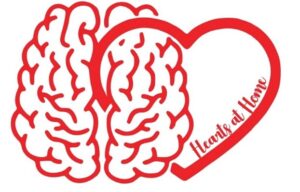Stroke is the leading cause of long-term disability and the 5th leading cause of death in the United States.

Professional caregivers have a front row seat to observing the habits and routines of our clients that may be contributing to elevated risk for stroke and other serious medical concerns and a duty to provide education and assistance to reduce those risk factors whenever possible. The staff at Hearts at Home recently participated in a 2-part lecture series on stroke and the Hearts at Home Stroke Care Specialty Program. Our Stroke Care Program consists of three phases of intervention: prevention at-home, in-hospital training, and post-hospital care. What makes this program unique is that all clients are considered part of the first phase of our stroke care program: prevention. The majority of our clients are at elevated risk for stroke due to a variety of factors such as age, sedentary lifestyle, diet, stress, co-morbid medical conditions, etc. We recognize that professional caregivers can impact this risk in many ways such as encouraging healthy eating habits, regular exercise, stress management, medication compliance, monitoring of vital signs, and consistent follow-up with medical providers. By helping our clients to adopt healthy lifestyles and recognizing the warning signs when something isn’t right, we are uniquely positioned to help our clients to remain healthy and at home.
The second and third phases of our stroke care program are where the Hearts at Home team really shine. Because of our emphasis on training and education, our caregivers have advanced knowledge to prepare them for caring for clients who’ve had a stroke. By getting involved early on while clients are still in the inpatient hospital setting, caregivers have the opportunity to learn about our client’s unique needs and abilities from the skilled medical providers working with them each day and can get involved before discharge to make sure the home is accessible and all needed equipment is in place to manage their care safely at home. Establishing a caregiver relationship prior to hospital discharge helps significantly to ease that transition home and alleviate some of the fear and stress that comes with discharge. Once at home, we recognize our role as an extension of the rehab team and work to implement therapist recommendations and home programs to get the best outcomes possible. Additionally, our team understands the sequalae of stroke and the importance of consistent medication administration, vital sign monitoring, and can recognize early warning signs and help our clients to get the care they need to manage complications post-stroke before they become big problems and to reduce hospital re-admission rates.
 STACEY WELFEL
STACEY WELFEL
Director of Training & Compliance
Mrs. Welfel serves as Director of Training and Compliance. She has more than 15 years of clinical experience as a neurological physical therapist, most of which was spent working with catastrophic rehab clients at TIRR Memorial Hermann Hospital. She currently works as a physical therapist and clinical coordinator for Rehab Without Walls, a unique rehabilitation concept providing patients with neurological injuries the functional skills necessary to return to their home and community.
